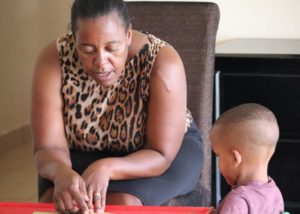A look at Proverbs 31:1-9
“What are you doing?” That’s the question King Lemuel’s Mom asked him. The words of the King’s mother begin with this haunting and riveting question . . . what are you doing? Perhaps this is something his Mother said to him when he graduated from King College.
That’s the question King Lemuel’s Mom asked him. The words of the King’s mother begin with this haunting and riveting question . . . what are you doing? Perhaps this is something his Mother said to him when he graduated from King College.
What makes the question so challenging is what she is not asking. She is not asking what the King believes, thinks about, tried to do or even what he wants to do. “What are you doing” is repeated 3 times in verse 2 with a different emotional hook each time.
You may be ready at this point to respond with another question . . . what am I doing about what? That question is answered throughout these 9 verses and directs us to the point of this section of the Proverbs.
What are you doing for the weak and vulnerable people around you?
Note as we read the Mother’s teaching to her King son, she uses 8 different words to describe the people that her son needs to see and speak up for. Here are 5 descriptions of the kind of people that she brings to her son’s attention and ours.
- Those not able to get a fair hearing, the voiceless.
- Economically weak, unable to defend against the powerful rich.
- Without experience or intelligence to seek justice on their own.
- Overwhelmed with the hurts and harsh realities of life.
- Not given respect because of their low position or who they are or where they work or what they look like.
Speak Up!
There are people all around us in the foster care system, the break room at work, the waiting room at the doctor’s office, the courtroom  downtown, the classroom at school and the playground down the street. What are you doing for, with and about them is the question . . . with the strange sense it sounds a lot like Mom’s voice!
downtown, the classroom at school and the playground down the street. What are you doing for, with and about them is the question . . . with the strange sense it sounds a lot like Mom’s voice!
We are to engage with the weak and vulnerable in a God-like way that is ultimately defined in the coming of Jesus and the good news of the gospel. Gospel advocacy is based on the reality that God has stepped clearly and convincingly into the world of needy people in transformative ways. With this understanding of the gospel . . . the good news that God in Jesus has spoken up for us, become our advocate and has unlimited capability for giving help to broken lives . . . speak up, do something in Jesus name!
Three thoughts to help you open your mouth and be an advocate:
- Make your advocacy close. Break down the distance between you and the weak and vulnerable. Proverbs 29:7 says, “A righteous man knows the rights of the poor; a wicked man does not understand such knowledge.” Like Jesus, enter their world. Break down barriers of pride, ignorance, superiority, prejudice and get closer to the weak and vulnerable in your world.
- Make your advocacy small. Pick out one specific child, family or issue to open your mouth for. Complexity of size and depth of brokenness will keep you disobedient if you let them. Be specific, be personal, and be small. Proverbs 21:3 says “To do righteousness and justice is more acceptable to the Lord than sacrifice.” Without having to go across the ocean or even across town – simply make a list of weak or vulnerable people such as this section of Proverbs describes. God has probably assigned you opportunities that you may not currently see.
- Make your advocacy worship. Grow in your understanding of and response to the heart of God for the weak and vulnerable. Proverbs 14:31 says, “Whoever oppresses a poor man insults his Maker, but he who is generous to the needy honors him.” The praise songs God desires to hear (Psalm 68:4-6) and the fasting that God delights in (Isa. 58:6-10) are all linked directly to your speaking up for the vulnerable children around you.
There are a number of resources on the Bethesda Outreach website resource page that can help equip you as you purpose to open your mouth for the vulnerable and the God who cares for them so much.
Do you think the King listened to his Mom? Will you?

